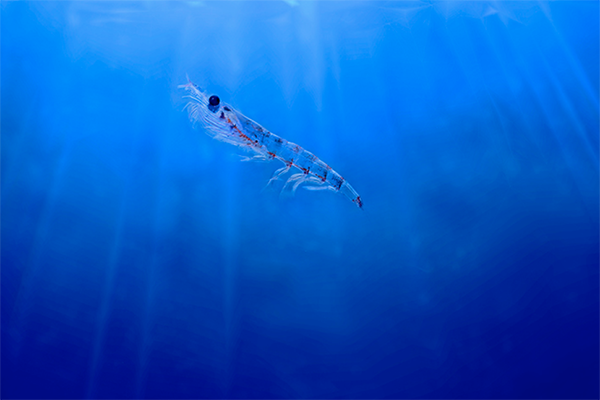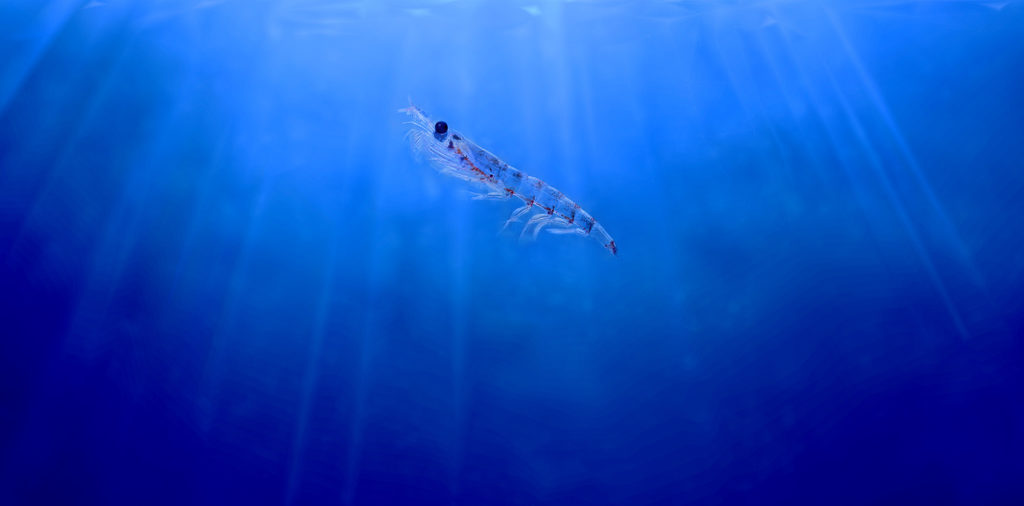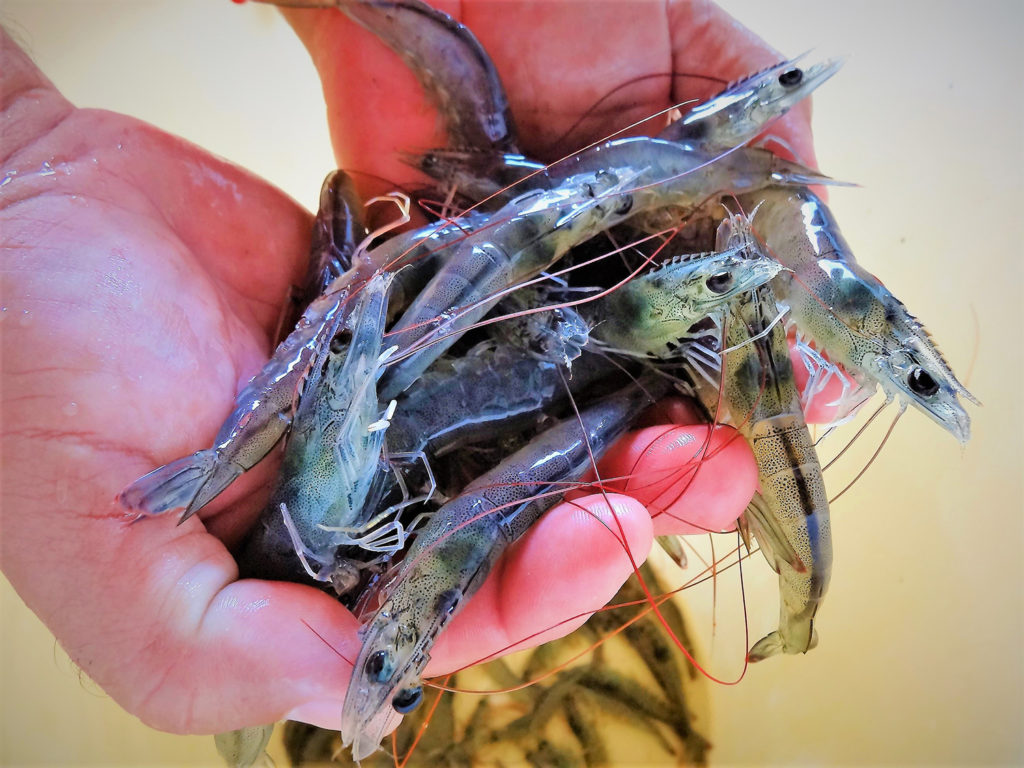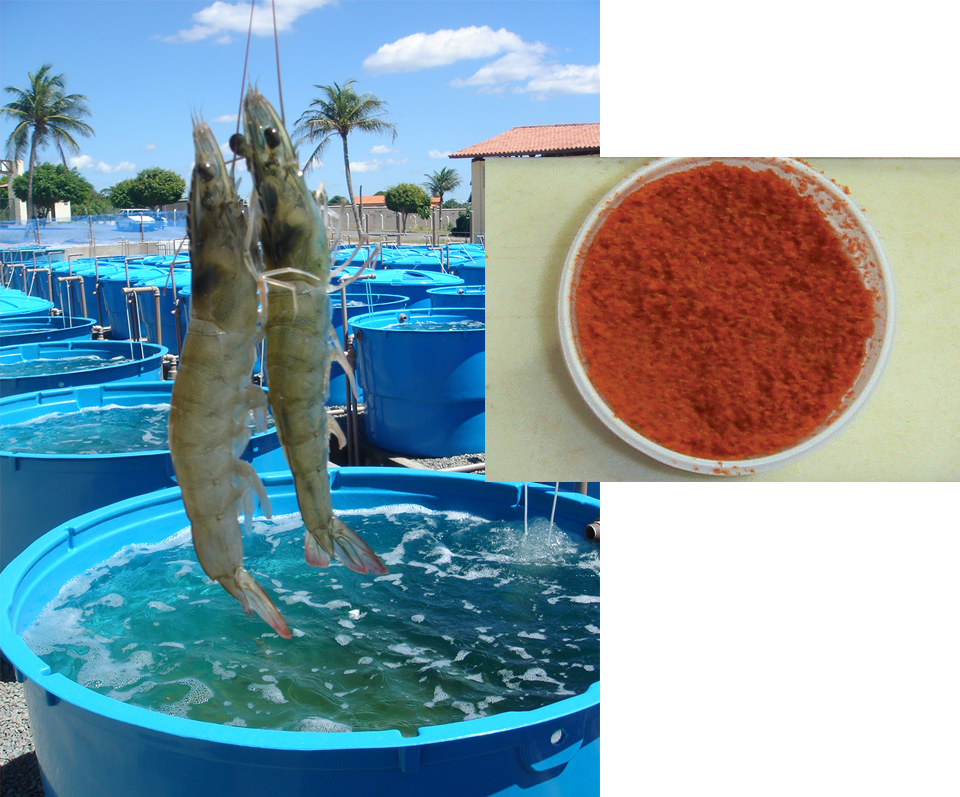Trial results show krill meal has potential for developing sustainable shrimp feed formulations

A new study has found that Antarctic krill meal is a “beneficial functional ingredient” for white leg shrimp (Penaeus vannamei) dietary feed. The eight-week feeding trial, which was conducted by India’s Central Institute of Brackishwater Aquaculture (ICAR) and Aker BioMarine, revealed the inclusion of 4 to 6 percent krill meal in the diet can lead to higher body weight and greater survival among the shrimp.
“The shrimp industry is in pursuit of more sustainable and beneficial dietary feeds, and it is important to understand how functional ingredients, such as krill meal, can lead to better outcomes,” said Lena Burri, Director R&D, Animal Nutrition and Health at Aker BioMarine, a biotech innovator and Antarctic krill-harvesting company. “This recent shrimp study out of India indicates that krill meal inclusion, at levels between 4 to 6 percent, can have a positive effect on shrimp survival, body weight and fatty acid concentration in the body.”
Operating from the ICAR facility in India, the feeding trial analyzed the impact of krill meal on shrimp diets with moderate (12 percent) and low (6 percent) fishmeal concentrations. Varying amounts of krill, between 0 to 6 percent, were added to these diets, which the shrimp received three times daily throughout the experiment. Key findings were as follows:
- Shrimp fed 6 percent krill meal in the diet had the highest body weight at the end of the study.
- Shrimp survival was significantly increased in the groups fed 4 percent and 6 percent krill meal in the diet.
- When 6 percent krill meal was included in the diet, the shrimp showed a higher content of n-3 polyunsaturated fatty acids.
- 2 percent krill meal in a diet containing 12 percent fishmeal significantly increased the expression of six immune-related genes in the hepatopancreas of the shrimp.
“The results of this experiment show that krill meal, when supplemented in amounts between 4 and 6 percent, is a beneficial functional ingredient for both moderate and low fishmeal diets,” said Dr. K. Ambasankar, principal scientist at ICAR. “This finding is based on the increased growth performance in the groups consuming krill meal and overall improved survival rates, leading us to our conclusion that krill meal can be a viable supplement to fishmeal in shrimp feeds.”
India is considered one of the world’s largest markets for shrimp. Between 2020 and 2021, the country exported nearly 11.5 million tons of seafood, with frozen shrimp comprising the majority. Shrimp farmers in India continue to seek ways to improve profitability and productivity, with higher survival rates and larger-sized shrimp serving as key opportunities.
“India is a major exporter of shrimp to the U.S., European and Asian markets, and its position in the shrimp industry will depend on its ability to remain competitive, run sustainably and meet higher productivity targets – through bigger and healthier shrimp,” said Atul Barman, director and general manager at Aker BioMarine India. “The dietary feed plays a major role in helping shrimp producers achieve these goals, which is why it is essential to uncover the functional ingredients, such as krill meal, that can help them achieve optimal results.”
Follow the Advocate on Twitter @GSA_Advocate
Now that you've reached the end of the article ...
… please consider supporting GSA’s mission to advance responsible seafood practices through education, advocacy and third-party assurances. The Advocate aims to document the evolution of responsible seafood practices and share the expansive knowledge of our vast network of contributors.
By becoming a Global Seafood Alliance member, you’re ensuring that all of the pre-competitive work we do through member benefits, resources and events can continue. Individual membership costs just $50 a year.
Not a GSA member? Join us.
Author
Tagged With
Related Posts

Responsibility
New evidence suggests Antarctic krill meal is a promising and responsibly harvested aquafeed alternative
New evidence indicates that Antarctic krill meal is beneficial in salmonid diets, and under certain conditions, can be sustainably harvested.

Aquafeeds
Will krill fulfill its promise as an aquaculture feed ingredient?
Krill has been shown to augment aquafeeds but utilizing and protecting the resource demands specialized equipment and a patient, collaborative approach.

Aquafeeds
Krill meal performs well in shrimp feed experiments
A study of experimental diets for juvenile shrimp showed a halving of fishmeal usage. Limited inclusion of krill meal offset other expensive ingredients.

Health & Welfare
Krill meal use reduces other costly ingredients in shrimp study diets
Due to its high protein and highly unsaturated fatty acids content, krill meal can be an effective ingredient in aquafeed.



